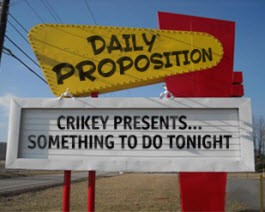If you’re ever feeling down about family problems, I’m one of those people who can lay out a family tree for you that will make you feel infinitely better about your own. Somewhere in amongst the family feuds, the branches that aren’t talking to other branches, the adulterers, and the illegitimate children lay a dead end — I had no idea who my grandfather was, or where he hailed from. I’m sure many people are in the same situation.
Tracing a family tree can be a surprisingly involved process. People with a common name (I’m cursed with this problem) may have an interesting time, records may only exist in far-flung corners of the world, and it’s potentially an expensive endeavor.
There are many websites out there that Google can point you too — the obvious one that comes to mind is ancestry.com.au, a large reaching network that can help you trace your ancestors through most of the English speaking world. Besides that there are a number of websites set up to distribute convict and settlers history, criminal records, even a number of the department of births, deaths and marriages websites can at least give you names and dates – any more often comes at a price.
Several pricey certificates and a couple of subscriptions later, I’ve learnt that my grandfather came over from India during the demise of British India. His family members were high officials in the police, and the railway industry. He was married three times, the first time to his cousin, the third time to my grandmother, thirty years younger than him. At one point I’ve managed to trace a branch of his family tree back to 16th century Dutch royalty.
It’s an easy addiction to get sucked into though — once you learn about one side of your family, your attention generally turns to the other side, and you start tracing the family tree back. You get to a point where you can find out a scant details: a date of birth here, a place of residence here. If you’re lucky, maybe even an occupation. You might come across distant relatives in your search that have done the hard yards for you.
The secret is knowing when to quit — that no matter how many dates or places you find out about your ancestors, it’s very rare that you get anything else, any real sense of who the person was.
No matter though, I can now confidently say that I have a mixture of British, Welsh, Irish, Dutch, Indian, and one half-Aboriginal as a result of an illicit affair in my background. I can safely call myself Australian, at that, and just cut my losses.
*Matt Smith teaches journalism at La Trobe University and blogs at the End of the Spectrum








Great article Matt.
It can be difficult to find out much more than the basic facts for some of our ancestors, and the further back you go the scarcer these records become. But I think that is part of what makes finding such records so enticing – that fact that you ancestor appears in history as more than just a name and date can be a highly positive emotional experience.
Thanks Matt – I have always been curious about my Dad’s background, so thanks for the prompt. I’m onto it.
Matt, it was a more difficult challenge when I tackled it in the 70s and records weren’t as accessible as they are now, but the two most important caveats then (and I’d doubt they’re any less relevant now than they were in those days) which you didn’t mention were, 1) treat all alleged oral history ‘information’ with suspicion and 2) don’t accept interesting/helpful/whatever possibilities you come across (no matter how welcome they might be) unless you have first cross-checked them rigorously to confirm their likely authenticity.
All too often, some of the ‘best’ stories passed down turn out to be someone’s pure fantasy, or a desperate attempt to hide something.